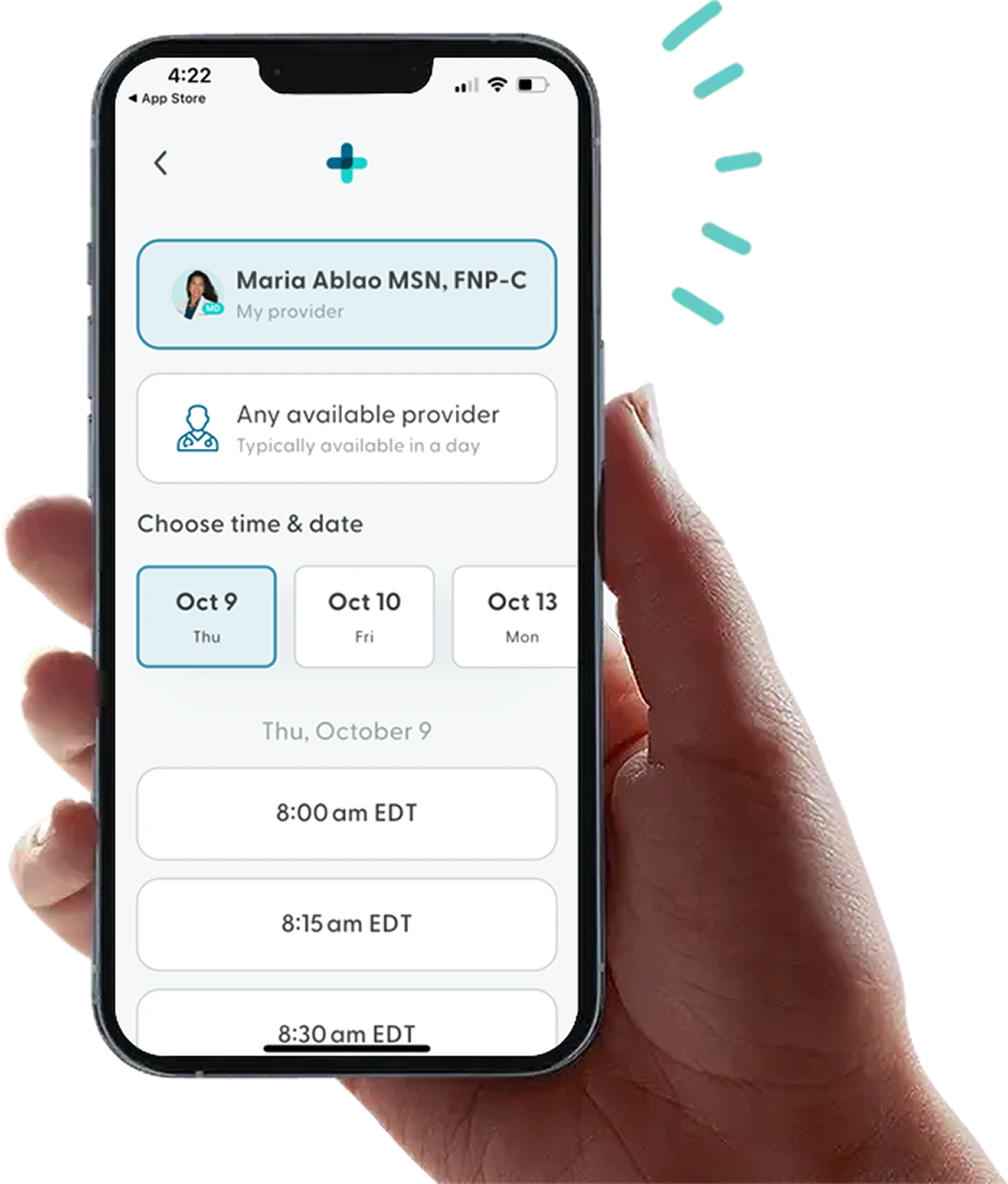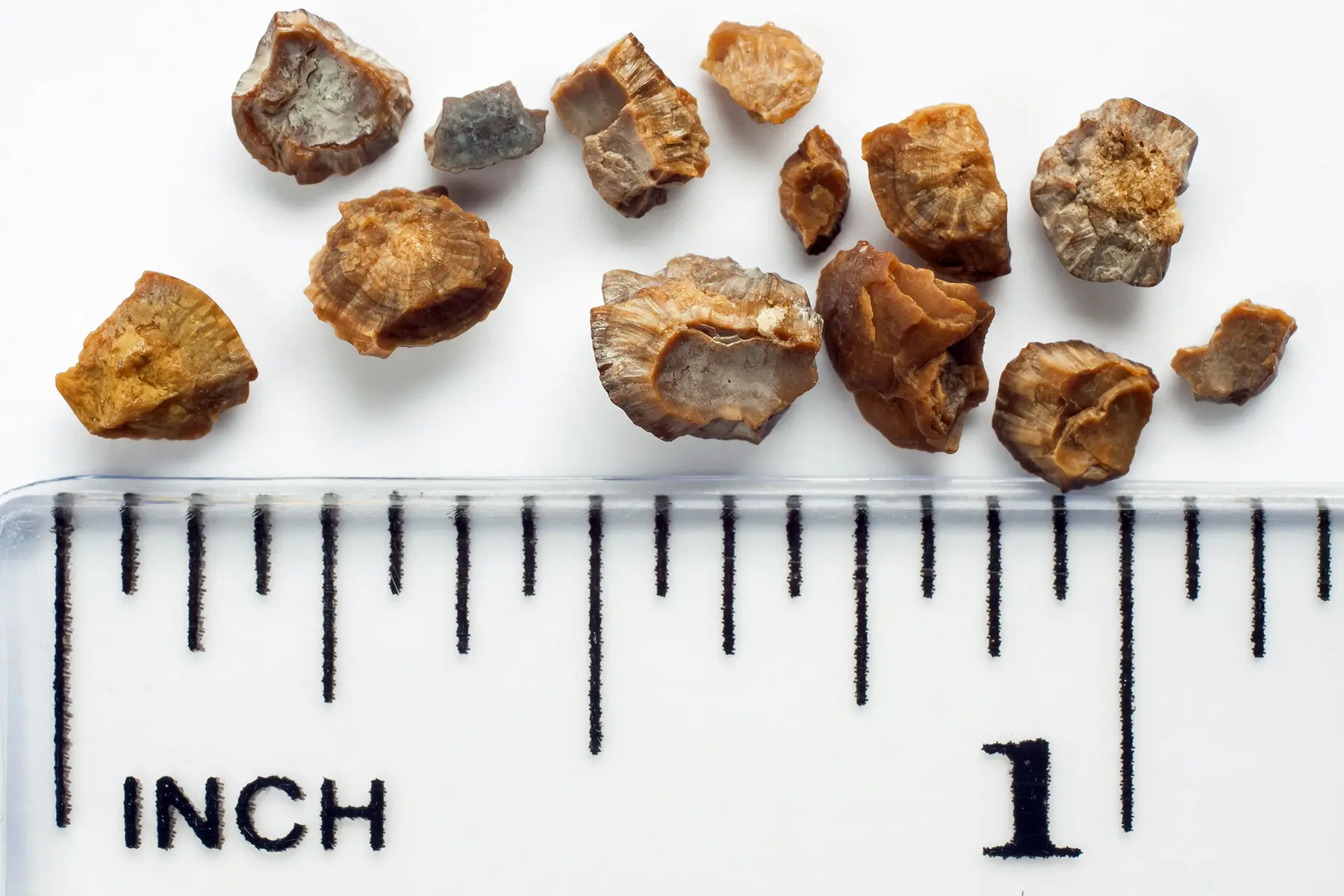Can Kidney Stones Affect Bowel Movements?
What Are Kidney Stones and How Do You Get Them?
Kidney stones — also known as calcium oxalate stones — are small, hard lumps of mineral and uric acid salts that form in the body.
They can vary in size, with some as small as a grain of rice and others as large as a golf ball.
The exact cause of this condition isn’t always clear, but certain factors may put you at an increased risk of forming kidney stones. These include:
Family history of kidney stones
Dehydration
Diet that is high in salt or protein
Obesity
Medical conditions like gout or hyperparathyroidism
If you have kidney stones, some of the first symptoms you will notice may be related to your GI system. You may experience:
Pain
Nausea
Vomiting
Non-GI symptoms of kidney stones could include painful urination that could be accompanied by fever and chills. Your urine may also contain traces of blood and have a foul smell.
Concerned about digestive issues?
Don’t let discomfort hold you back. Book an online appointment today for lasting relief.


Do Kidney Stones Cause Digestive Issues?
The GI-related symptoms caused by kidney stones may increase your risk of developing digestive issues as well.
Common problems associated with kidney stones include irritable bowel syndrome (IBS) and bowel obstruction. You may also experience diarrhea or constipation.
How Can Kidney Stones Impact Bowel Function?
The presence of kidney stones can cause inflammation in the bowel, which can lead to changes in bowel function.
Certain medications for treating kidney stones can also increase the risk of constipation.
Large stones may also cause a physical obstruction in the urinary tract — called urinary stone disease — which can lead to excessive retention.
When concentrated urine builds up in the bladder, it can put pressure on the bowels, leading to changes in movement and function.
Key Point: What is Abnormal vs. Normal Bowel Function?
Abnormal function is used to describe a condition where the normal pattern of bowel movements is interrupted.
This can cause changes in the frequency, consistency, and volume of stool. When natural bowel movements are interrupted, this leads to:
- Constipation
- Diarrhea
- Bloating
- Severe pain in the abdominal area
These gastrointestinal issues can be caused by many health conditions, including inflammatory bowel disease (IBD) and kidney stones.
Normal function, on the other hand, refers to regular bowel movements.
Although the frequency of bowel movements can vary, a healthy system usually allows you to easily pass a stool from three times a week to three times a day.
How Do You Establish Normal Bowel Movements after Kidney Stones?
If you’ve experienced changes in bowel movements because of kidney stones, there are a few things you can do to establish normal functioning.
Increasing your fluid intake by drinking more water and staying hydrated is essential.
Water flushes out potentially harmful minerals, but it also helps to soften stools to promote regular bowel movements.
Including more fiber — like fruits, vegetables, whole grains, and legumes — in your diet can also prevent constipation.
If your bowel movement issues are persistent or severe, you might need to speak to your doctor about alternative treatment options.
They may prescribe laxatives or anti-diarrheal medications to help you manage your symptoms and promote normal bowel functioning.
Can You Prevent Kidney Stones?
Although it’s not always possible to prevent stones from forming, there are steps you can take to reduce the chances of developing them. This also minimizes the risk of impaired bowel function.
As we’ve mentioned, one of the most important things you can do is stay hydrated.
Drinking enough water helps flush out minerals and other substances that contribute to the formation of kidney stones.
You can also make dietary changes like reducing your salt intake and eating less animal protein.
If you are prone to developing kidney stones, your doctor may recommend medications or supplements to prevent them from forming.
When Should You See a Doctor About Kidney Stones and Bowel Movements?
If you suspect that you may have developed kidney stones, it’s important to see your doctor as soon as possible. They will be able to determine if you can pass your kidney stones naturally or if you’ll need further medical intervention.
You can also speak to a board-certified physician or nurse practitioner about establishing normal bowel movement from the comfort of your home.
Head over to LifeMD to schedule a telehealth appointment.
More articles like this
Feel better with LifeMD.
Your doctor is online and ready to see you.
Join LifeMD for seamless, personalized care — combining expert medical guidance, convenient prescriptions, and 24/7 virtual access to urgent and primary care.

 Medically reviewed and edited by
Medically reviewed and edited by 










